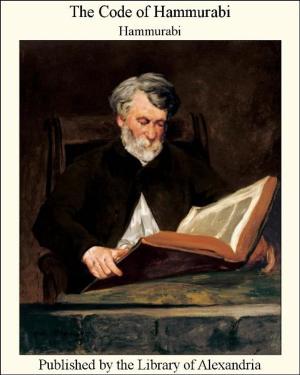Science and the Criminal
Nonfiction, Religion & Spirituality, New Age, History, Fiction & Literature| Author: | Charles Ainsworth Mitchell | ISBN: | 9781465610416 |
| Publisher: | Library of Alexandria | Publication: | March 8, 2015 |
| Imprint: | Language: | English |
| Author: | Charles Ainsworth Mitchell |
| ISBN: | 9781465610416 |
| Publisher: | Library of Alexandria |
| Publication: | March 8, 2015 |
| Imprint: | |
| Language: | English |
In the constant state of warfare between the law-maker and the law-breaker, which began when mankind first organised itself into communities and has existed ever since, every new invention or practical application of scientific discovery has supplied each side with new weapons frequently of much greater precision. The advantage thus conferred tends to be on the side of the law-maker but not invariably so; for in spite of all the facilities of investigation now available it is surprising how many crimes remain undetected, or how frequently in suspicious cases it is impossible to discover the truth. The law-breaker’s primitive weapon of natural cunning has thus often proved more than a match for all the weapons at the disposal, of his opponent. There is much to be said, therefore, for the suggestion which has recently been put forward on many sides that a department specially trained for the work of criminal investigation should be created. Under the present conditions the rank and file of the detective force, recruited as it is from the best of the uniformed policemen, contains many men of acute intellect and reasoning capacity, but it cannot be doubted but that in many cases their efficiency would have been enormously increased by a scientific training. The present system somewhat recalls that under which doctors acquired their knowledge of medicine in the early part of last century. Their mistakes taught them what not to do, but in the meantime the patient sometimes died. Methods of scientific reasoning so as to draw deductions from observed facts cannot be acquired by solitary night watches upon a “beat,” nor does the facility for breaking up a tangle in traffic which the constable acquires as the outcome of his daily duties, necessarily render him more capable of extricating from a mass of confused details the essential facts upon which stress should be laid. In some of the unsolved mysteries that have occurred during the last few years the presence of a highly trained intellect at the first hour of the investigation might conceivably have led to the detection of the criminal. As a rule, it is only after the first examination is over and the case appears likely to be a difficult one, that the best brains of the department are brought to bear upon the facts, and it may then be too late for effective action. It should be made possible for a man who possesses a facility for this type of work to join the criminal investigation department without having to go through the routine work of a police constable, which will probably add nothing to his powers of following up a clue; but, on the other hand, this period of probation should be occupied by practical training in scientific methods of working. The present conditions both of payment and of status are not of the kind that will attract the highest type of brain to the work of criminal investigation, and yet there is no reason why it should not be made to offer the advantages of other branches of professional work.
In the constant state of warfare between the law-maker and the law-breaker, which began when mankind first organised itself into communities and has existed ever since, every new invention or practical application of scientific discovery has supplied each side with new weapons frequently of much greater precision. The advantage thus conferred tends to be on the side of the law-maker but not invariably so; for in spite of all the facilities of investigation now available it is surprising how many crimes remain undetected, or how frequently in suspicious cases it is impossible to discover the truth. The law-breaker’s primitive weapon of natural cunning has thus often proved more than a match for all the weapons at the disposal, of his opponent. There is much to be said, therefore, for the suggestion which has recently been put forward on many sides that a department specially trained for the work of criminal investigation should be created. Under the present conditions the rank and file of the detective force, recruited as it is from the best of the uniformed policemen, contains many men of acute intellect and reasoning capacity, but it cannot be doubted but that in many cases their efficiency would have been enormously increased by a scientific training. The present system somewhat recalls that under which doctors acquired their knowledge of medicine in the early part of last century. Their mistakes taught them what not to do, but in the meantime the patient sometimes died. Methods of scientific reasoning so as to draw deductions from observed facts cannot be acquired by solitary night watches upon a “beat,” nor does the facility for breaking up a tangle in traffic which the constable acquires as the outcome of his daily duties, necessarily render him more capable of extricating from a mass of confused details the essential facts upon which stress should be laid. In some of the unsolved mysteries that have occurred during the last few years the presence of a highly trained intellect at the first hour of the investigation might conceivably have led to the detection of the criminal. As a rule, it is only after the first examination is over and the case appears likely to be a difficult one, that the best brains of the department are brought to bear upon the facts, and it may then be too late for effective action. It should be made possible for a man who possesses a facility for this type of work to join the criminal investigation department without having to go through the routine work of a police constable, which will probably add nothing to his powers of following up a clue; but, on the other hand, this period of probation should be occupied by practical training in scientific methods of working. The present conditions both of payment and of status are not of the kind that will attract the highest type of brain to the work of criminal investigation, and yet there is no reason why it should not be made to offer the advantages of other branches of professional work.















